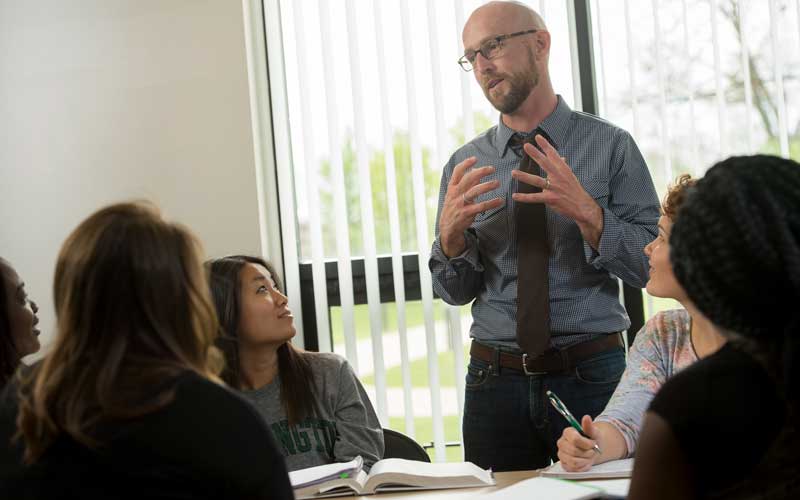
Servant Leaders for the Church
Do you feel called to serve as a leader in the church? Would you like maximum flexibility to pursue a double major or explore several academic interests while in college? Are you considering attending seminary and becoming ordained after graduation? Or would you like to be better prepared to be a leader for Christ in whatever career God may lead you to pursue? The Christian Ministries major or minor provide a solid foundation in the Bible, theology and ministry skills to prepare you for any of these paths to ministry leadership.
Christian Ministries Curriculum
As a Christian Ministries major at Huntington, you will learn about evangelism and discipleship, teaching, curriculum development and leadership and will acquire skills that will prepare you to lead all types of people into a deeper relationship with Jesus. Your Bible and theology classes will provide you with a comprehensive knowledge of God’s word, which is the foundation of all Christian ministry. The student life and spiritual formation programs on campus will help you become a mature disciple of Jesus, ready to model the love of Christ to children and adults. This major and minor can easily be combined with one of the other ministry majors, such as Children’s Ministry, Missions, Youth Ministry, or Special Needs Ministry or with a major chosen from another department at HU.
- Systematic Theology
- Lifespan Development for Ministry
- Discipleship and Evangelism
- Mission of the Church
- Ministry Leadership
- Personal Life of the Minister
- Relationships in Ministry
_web.jpg?h=520&w=695&fit=crop-center)
I'm Ready!
Take the next step towards your Christian ministries degree!
You May Also Be Interested In




_crop.jpg?h=140&w=140&fit=crop-top)




